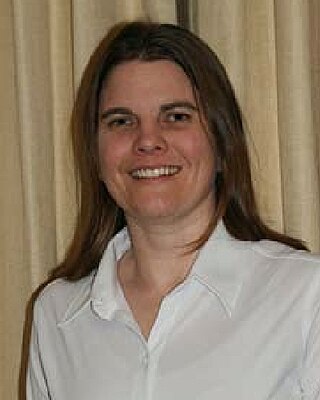Vitamin E is a group of eight fat soluble compounds that include four tocopherols and four tocotrienols. Vitamin E deficiency, which is rare and usually due to an underlying problem with digesting dietary fat rather than from a diet low in vitamin E, can cause nerve problems. Vitamin E is a fat-soluble antioxidant which may help protect cell membranes from reactive oxygen species. Worldwide, government organizations recommend adults consume in the range of 3 to 15 mg per day. As of 2016, consumption was below recommendations according to a worldwide summary of more than one hundred studies that reported a median dietary intake of 6.2 mg per day for alpha-tocopherol.
A nutrient is a substance used by an organism to survive, grow, and reproduce. The requirement for dietary nutrient intake applies to animals, plants, fungi, and protists. Nutrients can be incorporated into cells for metabolic purposes or excreted by cells to create non-cellular structures, such as hair, scales, feathers, or exoskeletons. Some nutrients can be metabolically converted to smaller molecules in the process of releasing energy, such as for carbohydrates, lipids, proteins, and fermentation products, leading to end-products of water and carbon dioxide. All organisms require water. Essential nutrients for animals are the energy sources, some of the amino acids that are combined to create proteins, a subset of fatty acids, vitamins and certain minerals. Plants require more diverse minerals absorbed through roots, plus carbon dioxide and oxygen absorbed through leaves. Fungi live on dead or living organic matter and meet nutrient needs from their host.
Linoleic acid (LA) is an organic compound with the formula HOOC(CH
2)
7CH=CHCH
2CH=CH(CH
2)
4CH
3. Both alkene groups are cis. It is a fatty acid sometimes denoted 18:2 (n-6) or 18:2 cis-9,12. A linoleate is a salt or ester of this acid.
The European Prospective Investigation into Cancer and Nutrition (EPIC) study is a Europe-wide prospective cohort study of the relationships between diet and cancer, as well as other chronic diseases, such as cardiovascular disease. With over half a million participants, it is the largest study of diet and disease to be undertaken.
Nutrition psychology (NP) is the psychological study of the relationship between dietary intake and different aspects of psychological health. It is an applied field that uses an interdisciplinary approach to examine the influence of diet on mental health. Nutrition psychology seeks to understand the relationship between nutritional behavior and mental health/well-being NP is a sub-field of psychology and more specifically of health psychology. It may be applied to numerous different fields including: psychology, dietetics, nutrition, and marketing. NP is a fairly new field with a brief history that has already started to contribute information and knowledge to psychology. There are two main areas of controversy within nutrition psychology. The first area of controversy is that the topic can be viewed in two different ways. It can be viewed as nutrition affecting psychological functions, or psychological choices and behavior influencing nutrition and health. The second controversy is the defining of what is "healthy" or "normal" as related to nutrition.

Asim K. Duttaroy is an Indian-born American medical scientist who, since 2001, has worked as a Professor at the Faculty of Medicine, University of Oslo, Norway. He was born in Gopinagar (Gangnapur), Nadia district, West Bengal, India.
The first 1,000 days describes the period from conception to 24 months of age in child development. This is considered a "critical period" in which sufficient nutrition and environmental factors have life-long effects on a child's overall health. While adequate nutrition can be exceptionally beneficial during this critical period, inadequate nutrition may also be detrimental to the child. This is because children establish many of their lifetime epigenetic characteristics in their first 1,000 days. Medical and public health interventions early on in child development during the first 1,000 days may have higher rates of success compared to those achieved outside of this period.
Sheila A. Skeaff is a Canadian-born New Zealand nutritionist and full professor at the University of Otago. Her research focusses on food literacy, sustainable diets and iodine deficiency.
Rachel C. Brown is a New Zealand scientist, professor and deputy head of the Department of Human Nutrition at the University of Otago.
Gillian Abel is a New Zealand public health researcher and as of 2021 head of the Department of Population Health at the University of Otago in Christchurch.

Carol Anne Wham is a New Zealand scientist and professor of public health nutrition at Massey University.
Jane Coad is a New Zealand public health nutrition researcher and professor in nutrition at Massey University. She is co-director of Massey's Vitamin D Research Centre which she and Pam von Hurst founded in 2010.

Marie Wong is a New Zealand academic food technologist, and as of 2020 is a full professor at Massey University.
Siew-Young Quek is a New Zealand academic and is a full professor at the University of Auckland, specialising in bioactive and functional food ingredients, lipid science and food processing.

Pamela Ruth von Hurst is a New Zealand academic and is a full professor at Massey University, specialising in human nutrition.

Lisa Anne Te Morenga is a New Zealand Maori academic, and she is a full professor at the Research Centre for Hauora and Health at Massey University. Her research focuses on nutrition and Māori health, especially in relation to dietary interventions to prevent metabolic disease.
Barbara Anne Bollard also known as Barbara Breen and Bollard-Breen, is a New Zealand academic, and is a full professor at Auckland University of Technology, specialising in using remote sensing and drones to map and manage conservation areas.
Keren Elizabeth Dittmer is a New Zealand academic, and is professor of veterinary pathology at Massey University, specialising in animal skeletal pathology, vitamin D, and genetic diseases.

Kathryn Louise Beck is a New Zealand academic, a registered dietitian, and is a full professor at Massey University, specialising in dietary assessment, sustainable nutrition, and iron deficiency in young women and sportspeople.






